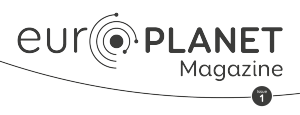Ariadna is a mechanism for collaborative joint research projects between ESA’s internal research think tank, the Advanced Concepts Team and academia. It was established in 2004 as an initiative to establish closer link with the European academic community in advanced space technology research.
Category: policy-industry
We just launched the Europlanet Magazine!
We just launched the Europlanet Magazine!
The official magazine of Europlanet, the European community for planetary science.
We are delighted to share with you the first issue of the Europlanet Magazine. The e-magazine will be published twice a year and aims to highlight the range of activities by Europlanet, our partners, and the wider planetary community.
This first issue has a strong focus on Mars, including European contributions to current missions, experimental research in labs and in the field, and outreach initiatives to engage the next generation. We look back at the origins of Europlanet and its links to the Cassini-Huygens mission at the beginning of this century. We also have updates on the Winchcombe meteorite and on several new partnerships to support planetary science.
Please check out Issue 1 and share with your networks to help us spread the word.
In this issue:
In Focus
A round up of news from Europlanet 2024 RI, the Europlanet Society, the Regional Hubs and Committees, and the Europlanet Science Congress (EPSC) 2021.
Memories of Europlanet’s birth
Michel Blanc (IRAP), coordinator of the first Europlanet projects, looks back on the origins and evolution of Europlanet
Planetary Perspectives
Q&A with Henrik Hargitai, Editor of the Pocket Atlas of Mars 36
Europlanet Society Joins International Planetary Data Alliance
Stéphane Erard (Observatoire de Paris) reports on Europlanet’s participation in international consortia that manage access to planetary data.
Searching for Answers to Life’s Big Questions
Fernando J Gomez and Mateo Martini (CICTERRA-CONICET) introduce the new Europlanet 2024 RI planetary analogue field site in Argentina
RoadMap to Understanding Atmospheric Dust on Mars
Ann Carine Vandaele (BIRA-IASB) addresses open questions about dust and clouds in the martian atmosphere through the H2020 RoadMap project
All Eyes on Mars
A round up by the editor on European involvement in Mars missions and lab-based research on Mars exploration, including the MEDA, SuperCam and MOXIE instruments on Perseverance and spiders on Mars.
My Journey to Mars by Maria Hieta (FMI), a personal viewpoint on working on Perseverance’s MEDA instrument and ExoMars,
The Fall of the Winchcombe Meteorite
Sara Russell (NHM) describes the first UK meteorite fall recovery in thirty years and the most exciting week of her life.
Building a Community for Planetary Geological Mapping
Angelo Pio Rossi (Jacobs University) describes Europlanet’s new geological mapping activity, GMAP
Mobilising Planetary Science in Africa
Fulvio Franchi (Botswana International University of Science and Technology) introduces a new network to support planetary science in Africa.
Industry Engagement
Marcell Tessenyi (Blue Skies Space Ltd) and Jeronimo Bernard-Salas (ACRI-ST) discuss the mutual benefits for industry and academia in developing collaborations.
CommKit
The Europlanet Magazine’s column on science communication by Shorouk Elkobros (Europlanet Society/ESF).
EPEC Corner
News from the Europlanet Early Career (EPEC) Network
Melissa Mirino (EPEC Communications Working Group) on how EPEC can support early career professionals, and the 2021 edition of the #PlanetaryScience4All video contest
3rd EPEC Annual Week
Erica Luzzi on the EPEC Annual Week, held as a virtual meeting this week
The Last Word
Nigel Mason on Europlanet: Moving Forward Together
Industry Engagement
Industry Engagement
Marcell Tessenyi (Blue Skies Space Ltd) and Jeronimo Bernard-Salas (ACRI-ST) discuss the mutual benefits for industry and academia in developing collaborations.
Read article in the fully formatted PDF of the Europlanet Magazine.
Increasing interactions between the planetary science community and industry, in particular small and medium-sized enterprises (SMEs), can lead to numerous opportunities and synergistic relationships.
The expertise of planetary scientists in a broad array of disciplines, from atmospheric research to machine learning, can help industry to explore new product applications and markets, whilst industry’s focus on maximising commercial value from projects can support academics in accelerating and extending the impact of their work.
Space-related innovations can have global significance, and SMEs can be an important link in channelling these innovations to the economy of participating countries and into everyday life. Industry-academic collaborations can open new doors for funding, broadening eligibility for grants and participation in programmes, as well as co-funding of staff and PhDs. These partnerships can also facilitate pathways for academics that wish to transition to industry careers and provide opportunities for graduates and doctoral candidates to be involved in applied space research and innovation activities with an industry perspective.
The success of the Horizon 2020 EXPLORE project is one recent example of what is possible when industry, with its product-orientated vision, combines with academics’ expertise in innovative, complex processes. EXPLORE has received 2 million Euros of funding from the European Commission to develop scientific data applications using state-of-the-art Artificial Intelligence (AI) and visual analytics to enhance science return and discovery from planetary and space science data. Technical developments from the project will be adopted into the commercial partner’s product line and will potentially provide additional products and services for the industry.
The EXPLORE consortium has largely come about through collaborations developed in the Europlanet 2024 Research Infrastructure (RI) programme, which has demonstrated how fostering industry and academic interactions is central to the work of Europlanet in supporting the community. To facilitate the formation of more such partnerships, a company database that includes up-to-date technical domains and contact details for private sector organisations with an interest in planetary research is being developed by the Europlanet industry team and validated through the Europlanet Society’s network of Regional Hubs.
Networking events and workshops organised in collaboration with the Regional Hubs, the annual Europlanet Science Congress (EPSC), and the Europlanet policy team, all provide opportunities to bring together academics, industry and policymakers, and for the planetary community to get involved. These activities put emphasis on the involvement of under-represented countries, linking them to leading European technological partners and, overall, widening participation in European planetary research and innovation.
European Research and Innovation Days
European Research and Innovation Days is the European Commission’s annual flagship Research and Innovation event, bringing together policymakers, researchers, entrepreneurs and the public to debate and shape the future of research and innovation in Europe and beyond.
The event will take place online on 23 and 24 June 2021, allowing everyone to get involved from anywhere.
This year marks the start of Horizon Europe, our most ambitious EU research and innovation programme ever and will be a decisive moment to strengthen our European Research Area. Cooperation in research and innovation is essential in our recovery from the COVID-19 pandemic and will pave the way to a greener and more digital future. The European Research and Innovation Days represent a unique opportunity to add your voice to the conversation.
The event is all about collaboration: bringing together individuals and experts from all areas to build connections and ignite a brighter future.
Europlanet Launches Expert Exchange Programme
Europlanet Launches Expert Exchange Programme
A new Expert Exchange Programme, funded through Europlanet 2024 Research Infrastructure (RI), has been launched to support the mobilisation of the planetary community and transfer of knowledge. The scheme aims to share expertise and best practice, and to prepare new facilities and services for integration into the RI.
The programme provides funding for short visits (up to one week). Due to travel restrictions from the Covid-19 pandemic, virtual visits are also supported through the Europlanet Expert Exchange programme.
Objectives for an Europlanet Expert Exchange might be:
- To improve infrastructure facilities and services offered to the scientific community by Europlanet 2024 RI laboratories or institutes.
- To provide training on theoretical or practical aspects of the laboratory/fieldwork required to plan a future TA application.
- To foster cooperation between academia and industry (SMEs).
- To support early career professionals to develop skills to use or manage RI facilities or services.
- To widen participation from Under-Represented States in RI activities and services.
- To support the inclusion of amateur communities in European planetary science campaigns.
- To support engagement with wider society e.g. through the involvement of outreach providers, educators, journalists, artists etc.
For more details, see the Expert Exchange Call Page.
Astronet webinar 11 June 2021 – Defining a science vision and infrastructure roadmap for Europe
Astronet webinar 11 June 2021 – Defining a science vision and infrastructure roadmap for Europe
As a next step in developing a science vision, Astronet is holding an open webinar to present the current status and seek further advice from the European astronomical community via the EAS. The webinar will include an overview of the process from the chair of the Astronet Board, with presentations from the panels who have been working on draft sections, and plenty of time for questions.
The aim is for further consultation in the next few weeks, followed by production of the report to Astronet before the end of 2021.
Astronet is a consortium of European research funding bodies and national representatives purposed with developing a new science vision and roadmap, taking forward the pioneering and influential reports last updated around 2015. It includes as associates and observers ESA, ESO and the SKA and has close links to APPEC and the EAS.
The webinar is hosted by the EAS and will take place on 11 June, from 8h00 to 13h30 UTC (ie 9h-14:30h UK, 10h-15h30 CEST).
Registration is open now and you can complete this here
STATEMENT BY THE EIC ADVISORY BOARD AND THE ERC SCIENTIFIC COUNCIL
STATEMENT BY THE EIC ADVISORY BOARD AND THE ERC SCIENTIFIC COUNCIL
A joint statement was issued on 18.05.2021 by the EIC Advisory Board and the ERC Scientific Council, which can be found on the European Research Council website.
“The societal benefits of successful research and innovation are so high that public investment in this sector remains essential for the future of our society. At the European level, this was recognised in 2007 with the establishment of the European Research Council (ERC) to fund the highest quality curiosity-driven research, and in 2021 with the founding of the European Innovation Council (EIC) to support ground-breaking innovations. Both institutions aim to nurture the best talent in research and in innovation. Their presence under the same framework programme, Horizon Europe, recognises that many ERC researchers are also innovators and many EIC innovators also are researchers.”
Action Plan on Synergies between civil, defense and space industries
Action Plan on Synergies between civil, defense and space industries
On 13 April, the ITRE had a presentation by the Commission on the Action Plan on Synergies between civil, defense and space industries, which aims to further enhance and shape these interfaces to the maximum extent.
During the ITRE committee meeting, the Commission presented the action plan that is built upon three overall objectives:
- enhancing complementarity between relevant EU programmes (synergies)
- promoting EU funding for research and development on defense and space for the economy at large
- facilitating the use of civil industry research achievements and civil-driven innovation in European defense cooperation projects
To this end, the Commission proposes the launch of three flagship projects as possible game-changers:
- EU drone technologies
- EU space-based global secure communications system
- Space Traffic Management
2 billion Galileo-enabled smartphones sold until today
2 billion Galileo-enabled smartphones sold until today
The Galileo programme has reached an important milestone, with an estimated 2 billion Galileo-enabled smartphones sold until today. The first Galileo-enabled smartphone hits the market in 2016 and since then has expanded rapidly.
GSA Guerric Pont, Acting Head of Galileo Services Department said: “2 billion smartphones sold is a remarkable achievement, and bears testimony to the fact that the market understands and appreciates the added value that Galileo brings in terms of availability, robustness and reliability’’.
Training Webinars
Training Webinars
1. How to prepare a successful proposal in Horizon Europe (Webinar on 24 March 2021): Link: Recorded Session
2. A successful proposal for Horizon Europe: Scientific-technical excellence is key, but don’t forget the other aspects (Webinar on 21 April 2021): Registration here This webinar is a continuation of the session on “How to prepare a successful proposal in Horizon Europe”, held on the 24th March 2021. It provides additional details on the preparation of a proposal for Horizon Europe, like open science, gender dimension or dissemination, exploitation and communication aspects.
3. Other specialised webinars for participants will be announced in the news section of the F&T Portal
Establishing the space programme of the Union and the European Union Agency for the Space Programme
Establishing the space programme of the Union and the European Union Agency for the Space Programme
RECOMMENDATION FOR SECOND READING on the Council position at first reading with a view to the adoption of a regulation of the European Parliament and of the Council establishing the Union Space Programme and the European Union Agency for the Space Programme and repealing Regulations (EU)
| Rapporteurs Date appointed | Massimiliano Salini 12.6.2018 |
Introducing ESA Agenda 2025
Introducing ESA Agenda 2025
ESA Director General Josef Aschbacher has worked with the Member States to define new priorities and goals for ESA for the coming years.
ESA Agenda 2025 outlines the challenges ahead but also for the longer term in maintaining and growing Europe’s role in the space economy.
Main priorities:
- Strengthen ESA – EU relations
- Boost commercialization for a green and digital Europe
- Strengthen space for safety and security
- Address programme challenges Complete the ESA transformation
European Ways Forward for Space Traffic Management
European Ways Forward for Space Traffic Management
SPACEWAYS intends to create a common understanding of the guidelines and standards necessary to develop a Space Traffic Management concept for the European Union. The 18-month program aims to analyse the policy, legal and economic context of STM.
SPACEWAYS intends to provide guidelines to support European policy making thereupon.
SPACEWAYS will identify stakeholders and users’ needs by associating them with the project through a networking platform.
Moreover, specific attention will be devoted to mega constellation management, on-orbit operations or launch and re-entry future activities.
Conference on the future of Europe – campaign materials
Conference on the future of Europe – campaign materials
The Conference on the Future of Europe is a chance for all Europeans to make their voices heard. Use the recommended tools and get involved in shaping the EU’s future.
The EU is looking for your ideas on what Europe’s future should look like as part of its Conference on the Future of Europe initiative.
European Health and Digital Executive Agency
The European Health and Digital Executive Agency (HaDEA) manages European programmes and initiatives on behalf of the European Commission, and it works closely together with its parent Directorate-Generals such as DG CNECT, DEFIS, GROW, RTD.
The HaDEA addresses the European Commission’s ambition to help rebuild a post-COVID-19 Europe at its heart, which will be greener, more digital, more resilient and better fit for the current and forthcoming challenges.
The expected total budget managed by the HaDEA will amount to over €20 billion over the 7 years period of the 2021-2027 Multiannual Financial Framework.
First calls under Horizon Europe to be launched by the European Research Council ERC Kicks off Horizon Europe
First calls under Horizon Europe to be launched by the European Research Council ERC Kicks off Horizon Europe
The EU institutions reached a political agreement on Horizon Europe on 11 December 2020 and set the budget for Horizon Europe at €95.5 billion in current prices. On this basis, the European Parliament and the Council of the EU proceed towards the adoption of the legal acts. The work programme for the European Research Council was adopted on 22 February 2021. For additional information: Click Here
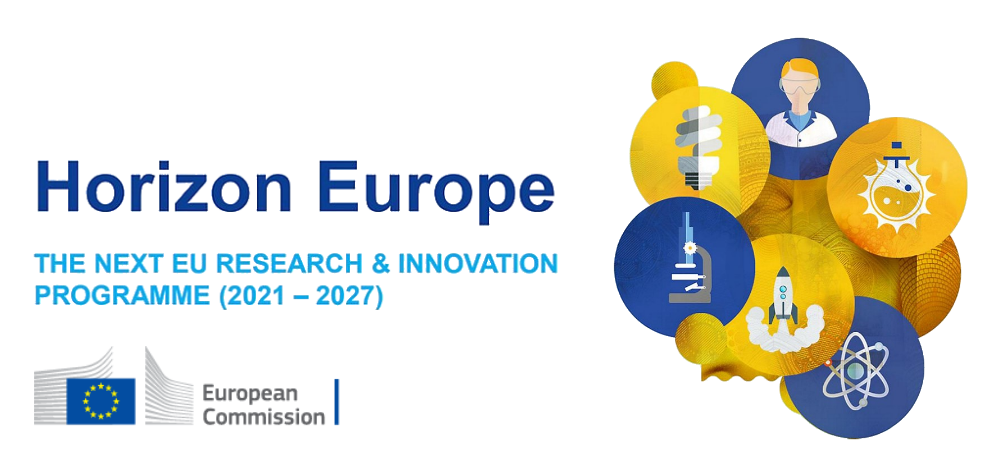
European Research Council approved a €1.9 billion financing package to allow some 1,000 top researchers to pursue frontier research.
The funding will support jobs for an estimated 6,860 postdoctoral researchers, PhD students and other research staff employed in ERC-funded teams.
Mariya Gabriel, Commissioner for Research, Innovation, Culture, Education and Youth highlighted the importance of the adopted Work Programme as that will support top researchers and their teams to pursue frontier research at different stages of their careers. Top researchers considered as the future of European research.
Additionally, Professor Jean-Pierre Bourguignon, President of the European Research Council welcomed the adopted Work Programme as an important tool to back Europe’s researchers and their most innovative ideas. Thanks to the European Commission’s commitment, and the outstanding dedication of the Executive Agency staff the first call for proposal have already launched in 25 February.
First Calls for proposal in 2021
- European Research Council’s Starting Grants as supporting top researchers to start their own independent research team or programme. Total budget: €619 million. The call launched it on 25 February and a deadline of 8 April.
- Consolidator grants for researchers who are consolidating their own independent research team or programme. Total budget of €633 million. The call launched it on 11 March and a deadline for applications is 20 April.
- European Research Council will launch a call for Advanced Grants for leading advanced investigators. Total budget of €626 million. The call will be launched on 20 May and a deadline on 31 August.
World Space Forum 2020
World Space Forum 2020
The United Nations/United Arab Emirates Forum focused on ‘Space for our Future’ to maximize the efforts in ensuring that the benefits of space are brought to everyone, everywhere. The 2020 edition sought to facilitate the exchange of best practices and more inter-agency collaboration in support of the SDGs so that space assets, exploration and utilization finally become more universally used as one of the key tools for a better future.
Available materials (Presentations of the online virtual meeting): Click here
Video recordings of the session: Click here
Establishing the space programme of the Union and the European Union Agency for the Space Programme / ITRE (Committee on Industry, Research & Energy)
Establishing the space programme of the Union and the European Union Agency for the Space Programme / ITRE (Committee on Industry, Research & Energy)
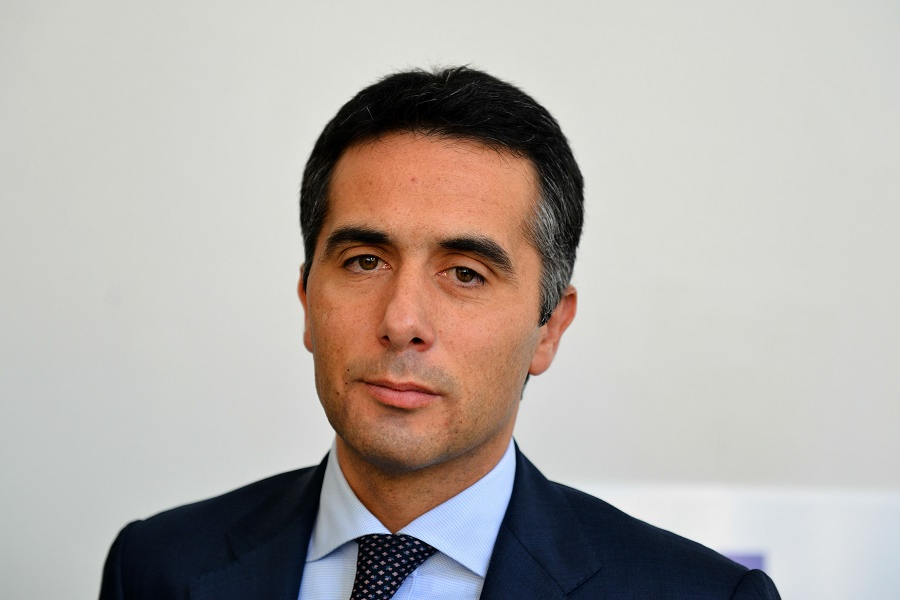
Massimiliano Salini(Rapporteur/EPP) highlighted the importance of the reached agreement for the future of the European strategy in terms of guaranteeing services to the level that its citizens expects and deserves. Space sector is going to be a strategic sector for when it comes to the recovery from COVID 19. For additional information: Click here
13th European Space Conference Space Embracing a Changing World: Green, Digital, Resilience & Security
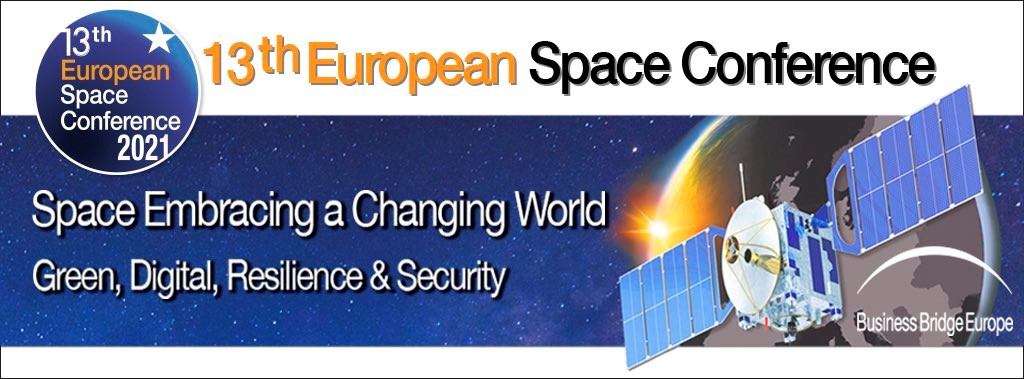
13th European Space Conference Space Embracing a Changing World: Green, Digital, Resilience & Security
Charles Michel, President of the EU Council laid out the overall strategy at a particular geopolitical moment for Europe. He stressed the importance of the Space Action in order to reach Europe’s strategic objectives:
- Climate and Digital Transition
- Mobilized unprecedented means to meet our objectives (Data, Cloud Computing and AI)
- Europe should become more strategically autonomous where unified action of the 27 European countries is needed
For additional information (Video recordings): Click here
For the meeting minutes: Click here
1st Regional Hub Policy-Industry Officers meeting
1st Regional Hub Policy-Industry Officers meeting
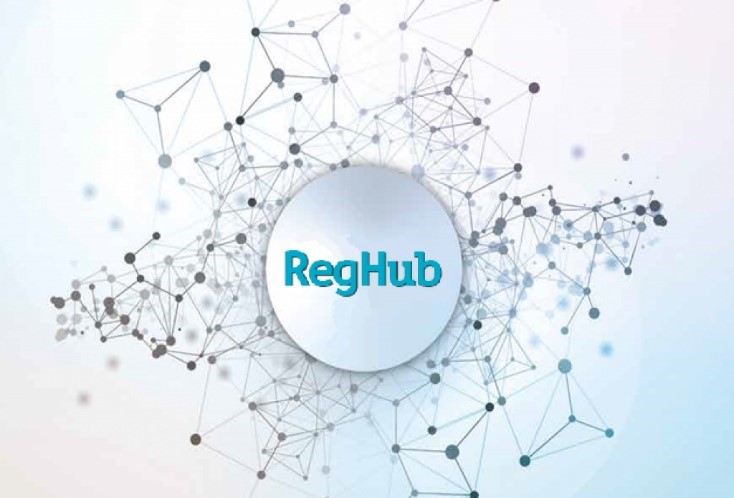
The 1st Regional Hub Policy – Industry officers meeting took place on December 10, 2020, with the participation of 24 Europlanet policy and industry officers representing most regional hubs.
The local perspective’s importance to build the Europlanet policy strategy and links to the industry was raised. The collection of country-specific space strategies and building a directory of expertise were some of the issues discussed.
2021 Call for Funding Scheme to Support Society Committees and Membership
2021 Call for Funding Scheme to Support Society Committees and Membership
The 2021 Call for the Europlanet Society’s funding scheme to support its Committees and Membership is now open.
Applications can be submitted by any of the Society’s Regional Hubs, Committees (EPEC, Diversity) or Working Groups in support of their activities or those of the Society Membership.
The scheme is designed to support projects with funds of between €1000-5000. The proposals should further the aims of the Europlanet Society and actively involve Society members.
The scope of the funding scheme is deliberately broad to enable the community to propose diverse and innovative projects.
Members of the Society may approach their Regional Hub (or any of the other Committees or Working Groups) with suggestions for projects, which may be submitted on their behalf.
The closing date for applications is 16 April 2021.
To find out more, Members can log-in to access the applications page for the funding call.

